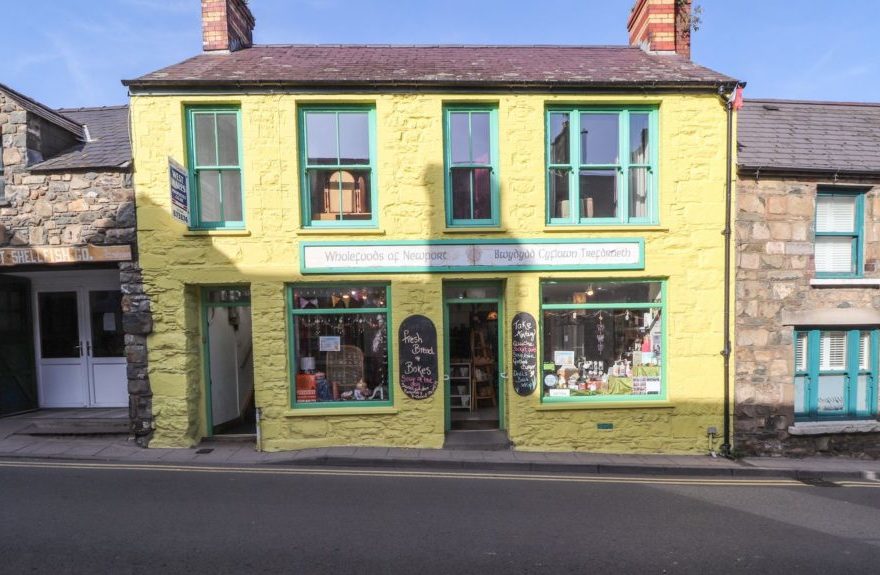Wales needs a new way forward for community ownership – report

New research has shown that Welsh communities face more challenges in being able to take over and manage assets which are at risk of being lost forever, compared to other UK nations.
Community Ownership: A Way Forward for Wales is a new report which paints a stark picture for the future of community assets, such as land, village shops and pubs, if changes are not put in place to help local groups save vital amenities from becoming derelict or being sold off.
The research was commissioned by Building Communities Trust from Plunkett UK, as part of the work being carried out by the Community Ownership Group (COG).
COG is a network of voluntary sector organisations which have come together to make the case for changes in the process by which communities can take ownership of assets.
The state in Wales
This new research provides evidence which shows that the situation in Wales is far worse than in other UK nations, with Welsh communities not having the rights afforded to people in England and Scotland.
Community assets are recognised as a being a significant factor in strengthening the resilience and wellbeing of local people, and our previous research has clearly shown a correlation between a lack of community assets in areas where people are less engaged, less active, have poorer connectivity to the wider economy, and experience significantly different social and economic outcomes to areas which possess more of these assets.
“Lagging behind”
What this new research tells is is that Wales is lagging far behind in terms of having the mechanisms and the support in place to help local groups to take ownership of community assets, at a time when many of these amenities are under threat due to the ongoing pressures of the Cost-of-Living crisis and government budget cuts.
Specifically, their findings show that:
· Scotland has the most effective legislative options and the rate of community-owned assets has grown much faster than England since legislation began
· The Scottish Community Right to Bid is several times more effective than the English version – with only 1.5% of nominated community assets transferring to community ownership in England, compared with 57% in Scotland
· Despite the Community Right to Buy being used only 24 times, there is evidence to suggest that first refusal can give communities leverage to negotiate the sale of assets outside of the legislation.
Furthermore, the research also showed that 87% of groups questioned wanted to help save an asset from being lost to the community, but only 7% were offered the chance to do this. 77% of communities also reported challenges when trying to acquire their asset and the most commonly-reported barriers were capital costs, the high price of the asset and uncooperative sellers.
Options
67% of participants also stated they were aware of options and processes around community ownership before beginning their project, suggesting that having prior knowledge of these details was a key factor in getting this work off the ground. This finding is also particularly critical for Wales, where groups were more likely to report a lack of skills and knowledge being a barrier to ownership, as well as access to information and support from a more limited range of sources.
Our research therefore includes eight clear recommendations for government in order to redress this imbalance and provide community groups in Wales with theresources and framework to support asset acquisition.
Short-term recommendations:
· Encourage peer networking amongst communities
· Increase awareness about successful projects
· Ensure access to online resources
· Create a “one stop shop” for community ownership projects in Wales.
Longer-term recommendations:
· Introduce a Community Right to Buy, offering communities first refusal on assets coming on to the market
· Continue and expand capital/revenue funding to Welsh community groups
· Consolidate application processes for funding where possible
· Public authorities should recognise the importance of community ownership to
· implementing the Wellbeing of Future Generations (Wales) Act.
Eleri Williams, Policy Officer at BCT, said: “This new research clearly reiterates the well known challenges facing communities in Wales, in enabling them to manage or take ownership of key facilities. It also provides clear and achievable actions which must be implemented at pace, to protect key facilities for tomorrow and beyond.
The Trust
Building Communities Trust is a nationwide organisation focused on community-based work in Wales.
Their mission is to enable residents to build on the strengths and talents within their communities and to take action to make their areas even better places to live.
They do this through offering communities funding, support, opportunities for shared learning, and advocacy work to help influence the organisations whose decisions affect Welsh communities
Support our Nation today
For the price of a cup of coffee a month you can help us create an independent, not-for-profit, national news service for the people of Wales, by the people of Wales.







